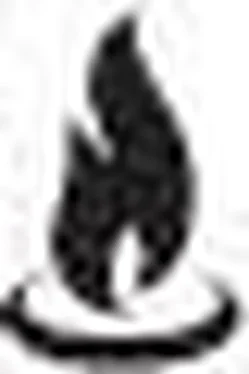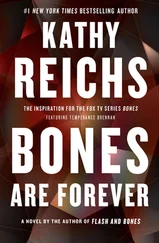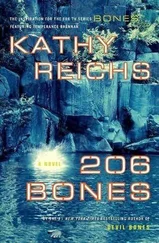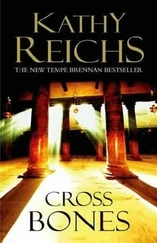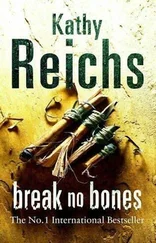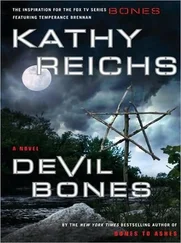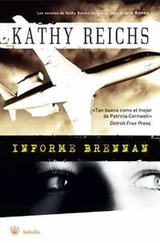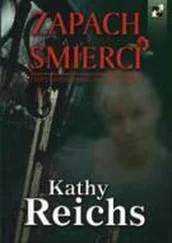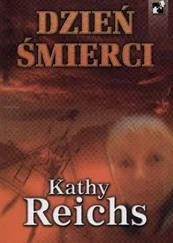Kathy Reichs - Bones to Ashes
Здесь есть возможность читать онлайн «Kathy Reichs - Bones to Ashes» весь текст электронной книги совершенно бесплатно (целиком полную версию без сокращений). В некоторых случаях можно слушать аудио, скачать через торрент в формате fb2 и присутствует краткое содержание. Жанр: Старинная литература, на английском языке. Описание произведения, (предисловие) а так же отзывы посетителей доступны на портале библиотеки ЛибКат.
- Название:Bones to Ashes
- Автор:
- Жанр:
- Год:неизвестен
- ISBN:нет данных
- Рейтинг книги:5 / 5. Голосов: 1
-
Избранное:Добавить в избранное
- Отзывы:
-
Ваша оценка:
- 100
- 1
- 2
- 3
- 4
- 5
Bones to Ashes: краткое содержание, описание и аннотация
Предлагаем к чтению аннотацию, описание, краткое содержание или предисловие (зависит от того, что написал сам автор книги «Bones to Ashes»). Если вы не нашли необходимую информацию о книге — напишите в комментариях, мы постараемся отыскать её.
Bones to Ashes — читать онлайн бесплатно полную книгу (весь текст) целиком
Ниже представлен текст книги, разбитый по страницам. Система сохранения места последней прочитанной страницы, позволяет с удобством читать онлайн бесплатно книгу «Bones to Ashes», без необходимости каждый раз заново искать на чём Вы остановились. Поставьте закладку, и сможете в любой момент перейти на страницу, на которой закончили чтение.
Интервал:
Закладка:
Until Évangéline vanished.
2
IWAS BORN IN JULY. FOR A KID, THAT’S GOOD NEWS AND BAD.
Since my summers were all spent at the Lee family beach house on Pawleys Island, my birthdays were celebrated with a picnic, then an excursion to Gay Dolphin Park on the Myrtle Beach boardwalk. I loved those amusement park outings, especially the Wild Mouse ride, white-knuckling up, down, and around narrow tracks, heart banging, cotton candy rising in my throat.
Good stuff. But I never got to bring cupcakes to school.
I turned eight that summer after Daddy died. Mama gave me a pink jewelry box with a music player and pop-up ballerina. Harry crayoned a family portrait, two big and two little stick figures, fingers spread and overlapping, no one smiling. Gran’s gift was a copy of Anne of Green Gables .
Though Gran prepared the traditional picnic of red velvet cake, fried chicken, boiled shrimp, potato salad, deviled eggs, and biscuits, there was no postprandial roller-coaster jaunt that year. Harry got sunburned and Mama got a migraine, so I stayed alone on the beach, reading about Anne’s adventures with Marilla and Matthew.
I didn’t notice her at first. She blended with the white noise of surf and seabirds. When I looked up she was less than two yards from me, skinny arms spiking from palmed hips.
Wordlessly, we assessed each other. From her height I guessed she had a year or two on me, though her waist was still child-thick, her faded swimsuit still flat on her chest.
She spoke first, jabbing a thumb at my book. “I’ve been there.”
“Have not,” I said.
“I’ve seen the Queen of England.” Wind danced the dark tangle on her head, lifting and dropping strands like shoppers deciding on ribbons.
“Have not,” I repeated, immediately felt stupid. “The queen lives in a palace in London.”
The girl dragged wind-forced curls from her eyes. “I was three. My grand-père held me up so I could see.”
Her English was accented, neither the flat, nasal twang of the Midwest, nor the vowel-bloating drawl of the Southeastern seaboard. I hesitated, uncertain.
“What did she look like?”
“She wore gloves and a lilac hat.”
“Where was this?” Skeptical.
“Tracadie.”
The guttural r sounded excitingly foreign to my eight-year-old ear.
“Where’s that?”
“ En Acadie.”
“Never heard of it.”
“‘This is the forest primeval. The murmuring pines and the hemlocks.’”
I squinted up at her, unsure what to say.
“It’s a poem.”
“I’ve been to the Art Institute in Chicago,” I said, feeling the need to match poetry with an equally high-brow response. “They have lots of famous pictures, like the people in the park painted with dots.”
“I’m staying with my aunt and uncle,” the girl said.
“I’m visiting my grandmother.” I didn’t mention Harry or Mama. Or Kevin. Or Daddy.
A Frisbee arced to earth between the girl and the ocean. I watched a boy scoop it and send it sailing with a backhanded toss.
“You can’t really go to Green Gables,” I said.
“Yes, you can.”
“It’s not real.”
“It is.” The girl worked one brown toe in the sand.
“Today is my birthday,” I said, at a loss to come up with anything better.
“Bonne fête.”
“That Italian?”
“French.”
My school in Beverly had offered French, the pet project of a Francophile nun named Sister Mary Patrick. Though my exposure had gone little beyond bonjour, I knew this girl sounded nothing like the language teacher who’d come to my first-and second-grade classes.
Lonely? Curious? Willing to listen to anything that transported me from the gloom in Gran’s big house? Who knows why? I bit.
“Was the prince with her?”
The girl nodded.
“What’s this Tracadie place like?” It came out “Track-a-day.”
The girl shrugged. “ Un beau petit village . A small town.”
“I’m Temperance Brennan. You can call me Tempe.”
“Évangéline Landry.”
“I’m eight.”
“I’m ten.”
“Wanna see my presents?”
“I like your book.”
I settled back in my chair. Évangéline sat cross-legged in the sand beside me. For an hour we talked of Anne and that famous farm on Prince Edward Island.
Thus the friendship began.
The forty-eight hours following my birthday were stormy, the daytime sky alternating between pewter and sickly gray-green. Rain came in windblown bursts, streaming salty wash across the windows of Gran’s house.
Between downpours I begged to be allowed on the beach. Gran refused, fearing undertow in the swells breaking white on the sand. Frustrated, I watched from inside, but caught no sign of Évangéline Landry.
Finally, blue patches appeared and elbowed back the clouds. Shadows sharpened under the sea oats and the boardwalks traversing the dunes. Birds resumed discourse, temperatures rose, and the humidity announced that unlike the rain, it was not leaving.
Despite the sunshine, days passed with no sign of my friend.
I was biking when I spotted her walking along Myrtle Avenue, head tortoised forward, sucking a Popsicle. She wore flip-flops and a wash-faded Beach Boys T-shirt.
She stopped when I rolled up beside her.
“Hey,” I said, one sneaker dropping from pedal to pavement.
“Hi,” she said.
“Haven’t seen you around.”
“Had to work.” Wiping sticky red fingers on her shorts.
“You have a job?” I was awed that a kid be permitted such a grown-up pursuit.
“My uncle fishes out of Murrell’s Inlet. Sometimes I help out on the boat.”
“Neat.” Visions of Gilligan, Ginger, and the Skipper.
“Pfff.” She puffed air through her lips. “I scrape fish guts.”
We started walking, me pushing my bike.
“Sometimes I have to take care of my little sister,” I said, seeking to establish parity. “She’s five.”
Évangéline turned to me. “Do you have a brother?”
“No.” Face burning.
“Me neither. My sister, Obéline, is two.”
“So you have to clean a few fish. It’s still cool to spend the summer at the beach. Is it really different where you come from?”
Something glinted in Évangéline’s eyes, was gone before I could read it.
“My mama’s there. She got laid off at the hospital, so now she works two jobs. She wants Obéline and me to learn good English, so she brings us here. C’est bon. My aunt Euphémie and my uncle Fidèle are nice.”
“Tell me about this forest primeval.” I steered from the topic of family.
Évangéline’s gaze drifted to a passing car, came back to me.
“L’Acadie is the most beautiful place on Earth.”
And so it seemed.
All that summer Évangéline spun tales of her New Brunswick home. I’d heard of Canada, of course, but my childish imaginings went little beyond Mounties and igloos. Or dogsleds mushing past caribou and polar bears, or seals perched on ice floes. Évangéline spoke of dense forests, coastal cliffs, and places with names like Miramichi, Kouchibouguac, and Bouctouche.
She also spoke of Acadian history, and the expulsion of her ancestors from their homeland. Again and again I listened, asked questions. Astonished. Outraged at the North American tragedy her people call le Grand Dérangement. The French Acadians driven into exile by a British deportation order, stripped of their lands and rights.
It was Évangéline who introduced me to poetry. That summer we stumbled through Longfellow’s epic work, the inspiration for her name. Her copy was in French, her native tongue. She translated as best she could.
Читать дальшеИнтервал:
Закладка:
Похожие книги на «Bones to Ashes»
Представляем Вашему вниманию похожие книги на «Bones to Ashes» списком для выбора. Мы отобрали схожую по названию и смыслу литературу в надежде предоставить читателям больше вариантов отыскать новые, интересные, ещё непрочитанные произведения.
Обсуждение, отзывы о книге «Bones to Ashes» и просто собственные мнения читателей. Оставьте ваши комментарии, напишите, что Вы думаете о произведении, его смысле или главных героях. Укажите что конкретно понравилось, а что нет, и почему Вы так считаете.
